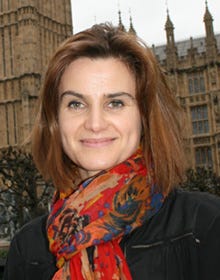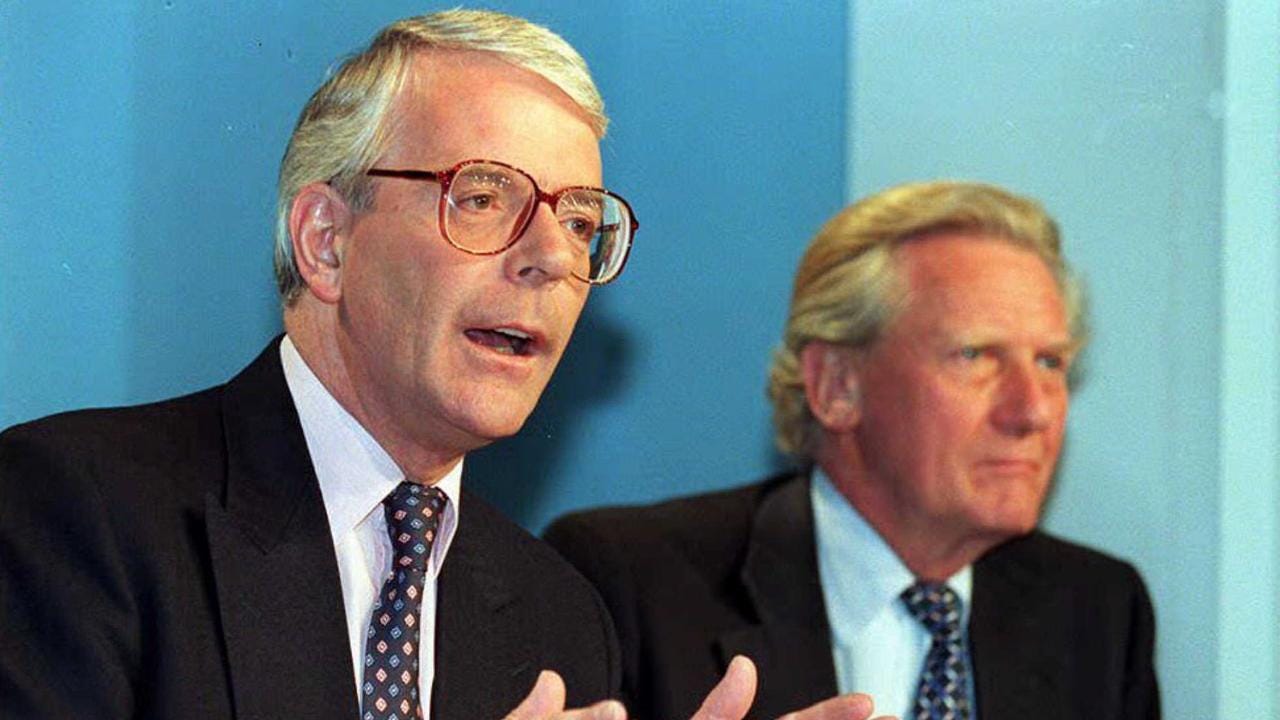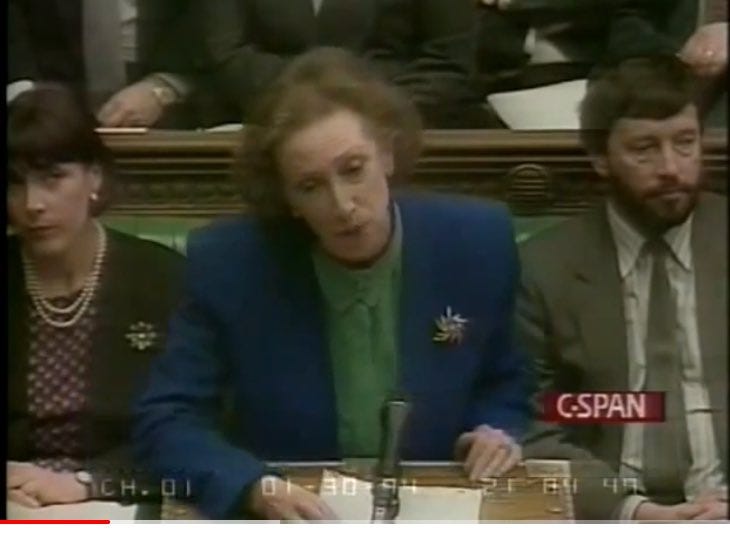Q & A with Martin Westlake
The London School of Economics professor explains the 1994 local and European election results and how John Smith’s death affected campaigning.
The Conservative Party took two further electoral blows in the spring of 1994. Labour’s revised standing, however, wasn’t immediately clear. The local elections on May 5th yielded impressive gains for the Liberal Democrats, picking up 428 of the 516 council seats lost by the Conservatives. Yet just a month later, after the death of John Smith, the European elections delivered a Labour landslide with more than 42% of the vote and even returned Labour MEPs outside its traditional heartlands.
Martin Westlake, visiting professor at the European Institute at the London School of Economics, visiting professor at the College of Europe, Bruges, and co-author of the ‘Nuffield Study’, British Politics and European Elections 1994, joined IFTC to explain what the two elections of 1994 meant for Labour and how they fit into the broader 1997 story.
This interview has been lightly edited for length and clarity.
The Conservatives lost more than 500 council seats in the 1994 local elections held in May, but it wasn’t a ringing endorsement of the Labour Party. The Lib Dems gained the lions-share of the former Conservative seats. Yet, just a few weeks later, Labour secured a commanding victory in the European elections, securing 42.6% of the vote and taking seats in Essex, Kent, Herefordshire, and Suffolk. What was behind this electoral shift in what looks like a very short period of time?
Great care needs to be taken in deducing significance from a ‘second order national election’ held on new boundaries (the number of UK seats having been increased from 81 to 87 since 1989) with 36.4% turnout after a campaign truncated by the tragic May 12th death of the Labour Party leader, John Smith.
There are two elements in the question: the Liberal Democrats’ relatively disappointing performance in the European elections after a relatively strong performance in the May 5th local elections; and the Labour Party’s strong electoral performance and apparent ‘breakthrough’ in the south. The explanations for both need to be teased out.
The Liberal Democrats’ relatively poor performance was ascribed in part, perversely, to its strong showing in the local elections. Over three decades it had built up support by projecting a strongly localist appeal. Commentators speculated that such a strong local identity had undermined its image as a serious national party. This was, some speculated, compounded by Paddy Ashdown’s decision to run an energetic regional campaign.
The third explanatory element, particularly in the south, was tactical voting. Those who bothered to turn out voted for the party they perceived to be best placed to defeat the Conservatives—that is, Labour (with the fresh-faced Tony Blair, already perceived as being the future leader, contrasted with the tired John Major). Parties’ use of sophisticated calculations about which party was in second or third place in various constituencies fell on deaf ears.
A fourth potential explanatory element was that, after the travails of the Maastricht Treaty ratification process, Black Wednesday, the blocking minority row, and so on, the electorate was quietly becoming more Eurosceptical. Though John Smith might have run a more positively pro-European campaign, the Labour Party’s temporary leader, Margaret Beckett, and the campaign manager, Jack Straw, were much cooler about the European Union. Perversely (again), the Liberal Democrats were perceived as being the more pro-European, thus probably exacerbating the tactical voting tendency I described.
All of that said, it should not be forgotten that the Liberal Democrats won seats in the European Parliament for the first time since direct elections were introduced in 1979.
The Conservative Party, in power since 1979, was badly in need of a period in opposition. Despite his valiant efforts, Major was unable to squeeze Euroscepticism back into the bottle.
The Labour Party, out of power since 1979, had meanwhile expunged most of its demons (the Militant Tendency, anti-Europeanism and unilateral nuclear disarmament in particular) and steadily professionalised its operations—though the 1994 campaign was, in some considerable part because of John Smith’s death, itself messy. In retrospect, the sea changes that became so apparent in 1997 were already underway in 1994.
As to Labour’s strong showing in the south in 1994, it was not all of the south. [John] Curtice and [Michael] Steed argued that it was what they call the ‘semi-south’, as opposed to the ‘deep south’, where the Liberal Democrats were stronger.
You mentioned John Smith’s death on May 12th, how did that affect campaigning for the European elections? Did Labour get a boost from being part of the national conversation in the build-up?
It had a major effect—the murder of Jo Cox and its consequences in terms of a truncated campaign and different political discourse for the 2016 Brexit referendum reminded me more than a little of what happened in 1994.
First, the grievously troubled Prime Minister John Major, who was widely expected to face a leadership challenge, was let off the hook in several ways.
There was a general suspension of hostilities by the political parties and the media. All the pressure on Major and his government was suddenly gone, and for some time (until 21st May). The truce took much of the momentum out of the Labour campaign.
The threat from Major’s chief rival, Michael Heseltine, evaporated. Like Smith, Heseltine had previously suffered a heart attack, and doubts were inevitably raised about his ability to cope with leadership stress and pressures. Major was also able to adopt a conciliatory and statesman-like tone at the Scottish Conservative Party Conference, diverting attention away from the sleaze issues that had been dogging his administration. Major’s undoubted basic decency shone through, redeeming him in the eyes of the general public and, taking all of this together, his leadership was consolidated. For better or worse, he would lead his party into the next General Election.
Second, the political community and the media were suddenly full of speculation about the timing and the probable result of the Labour Party’s new leadership election mechanism, with Tony Blair soon emerging as the probable favourite and the media’s darling. At the same time, the Party’s campaign strategy was massively dislocated by the sudden disappearance of the charismatic leader who, it had been planned, would have led from the front.
Not only did this discombobulate the Labour Party, but Smith’s untimely death removed the Conservatives’ main target. They had dubbed Smith ‘Monsieur Oui, the poodle of Brussels’, but once he had gone, they had to concentrate on issues rather than personalities. Certainly, Margaret Beckett could not be characterised as ‘Brussels’ poodle’ and the new leader was still unknown, although increasingly obvious.
We wrote in the 1994 study:
“The 1994 elections were a curious affair. The Conservative Party was a clear loser, but John Major was seen as a clear winner. The Liberal Democrats won seats for the first time but were perceived as having fared badly. Tony Blair won an election before he became leader (no other national election this century has been fought with one of the major parties leaderless). The Labour Party won seats by focussing on national politics, and the Conservatives lost Euro-seats by focussing on Europe. Still deprived of power in Westminster, Labour became stronger in Strasbourg. But, as the Euro-elections faded rapidly from view, European remained firmly on the British political agenda.” (p. 304)
European elections are often overlooked in national political analysis due to low turnout and limited voter interest. You and David Butler, however, carried out extensive research on the 1994 European elections. Was 1994 different? Have European elections received less attention than they deserve as an area of political study?
Direct elections to the European Parliament have ‘suffered’ from a lower level of attention from the media and political scientists in all Member States because they continue to a considerable extent to be ‘second order national elections’, with low turnout, etc. But I don’t think you can say that they are overlooked.
On the other hand, their consequences for domestic politics have almost certainly been overlooked, particularly in the UK. For example, Curtice and Steed presciently observed in 1994 that “The virtual halving of [the number of Europhile Conservative MEPs] helps to weaken yet further their party’s ties with Europe at a time when the party is adopting an increasingly hostile stance towards closer European integration.”
For the Conservatives, in retrospect, the 1994 European elections were a way station on the path from the party of Macmillan and Heath to the party of Cameron and Johnson.
How should we think about Tony Blair's 1997 victory relative to the 1994 European elections? He secured a similar vote share in the general election as Labour had managed in the 1994 European elections under Margaret Beckett's leadership. Did Blair assemble a new electoral coalition through his unique brand of politics, or had that coalition already decided Labour was its new political home?
You can’t really compare Margaret Beckett’s temporary leadership and the 1994 European election result with Blair’s three-year-old leadership and the 1997 General Election victory.
Labour’s performance in the European election that year was in considerable part due to increasing expectation of Blair’s impending election as leader. Not even Tony Blair imagined just how powerful those changes would be by 1997
Before you go…
Anthony Barnett explains how what he christens the ‘definite Left’ are challenging the status quo and blocking the advance of the far-right for the Byline Times supplement.
In a letter to the Guardian, Christian Wolmar argues improving Britain’s public transport is crucial for regional economic development but warns Labour should be wary of simply endorsing HS2.






